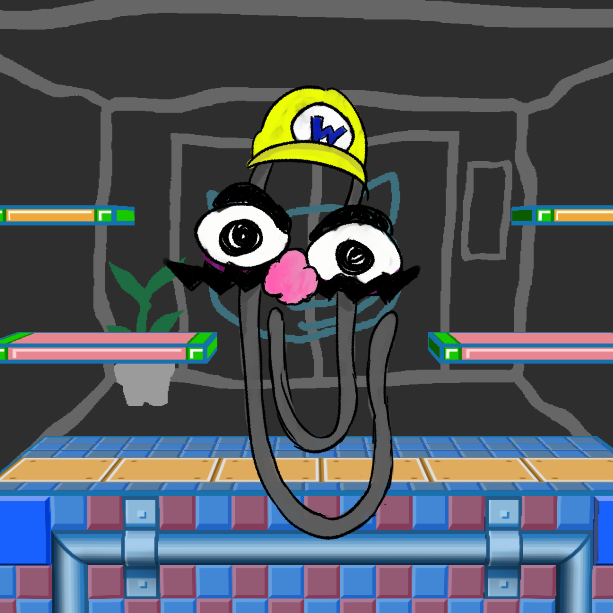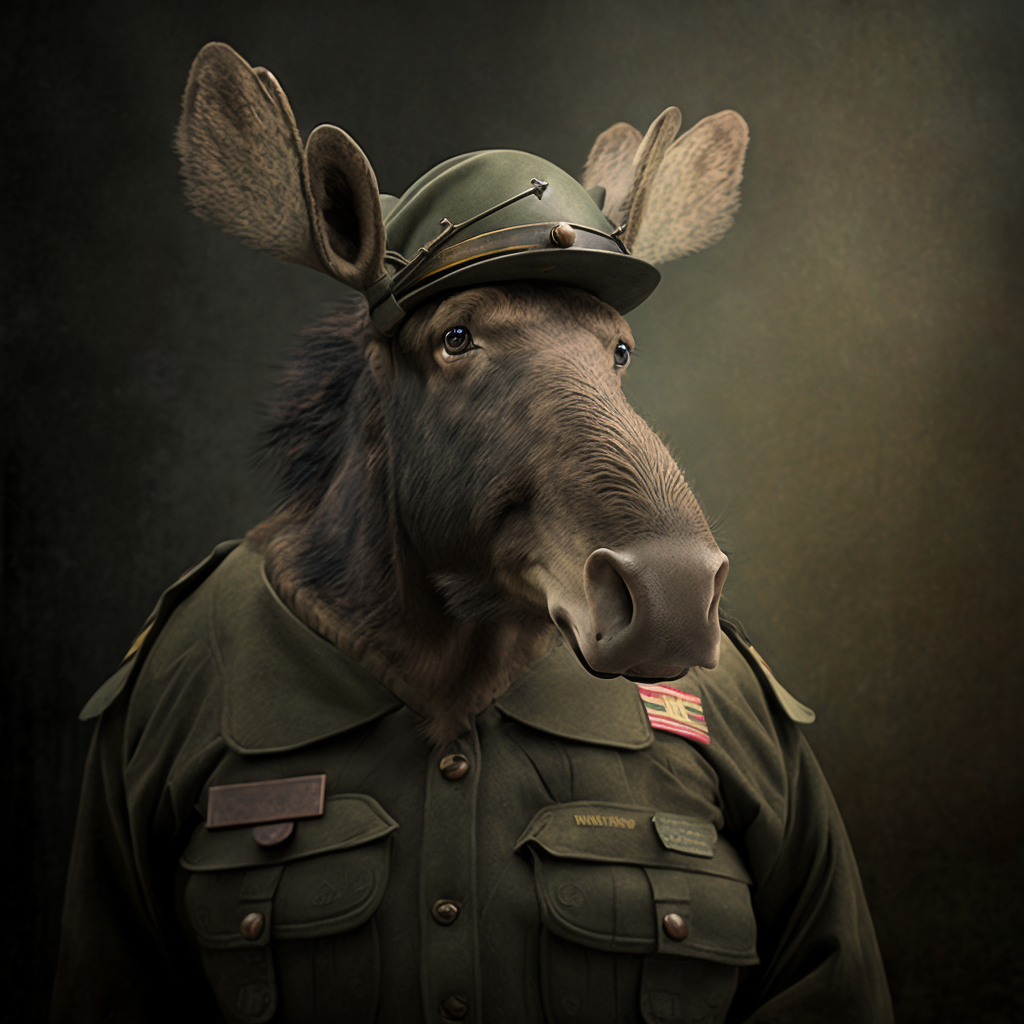- cross-posted to:
- [email protected]
- [email protected]
- cross-posted to:
- [email protected]
- [email protected]
Same country that just gave Nintendo a patent for a generic game idea thay has been in wide use for years. Yeah… this is strictly about profits from their anime industry. Japan is just as much of a capitalist dystopia as the US is. Though if they manage to hurt the AI ‘industry’ - nice, I guess?
“this is strictly about profits from their anime industry.”
ya dont say?
good thing the us would never destroy cultural landmarks in the name of conquest
I think they would
Japan has some of the worst copyright and fair use laws in the world.
Satire is often times considered copy right infringing.
I wouldn’t say they’re worse. I’d say they’re confusing as hell.
For example: fan manga are absolutely okay.
Fan manga and other doujin works usually depends on the original copyright holder for enforcement.
Some are pretty open for any fanworks being commercialized as long it’s limited and case by case basis. For example, Love Live franchise allows doujin manga and other doujinshi works, but not with fanmerch. Serial Experiments Lain generally allows various stuff, but not R18 content. Some others like Yakitate Japan mangaka just happy seing his works have so many adult doujin manga, and even lining up on Comiket buying them.
Scam Faultman has a face that looks like it’d be a pillowy soft paradise for any brave fist that lands upon it at high speed.
Fuck Japanese copyright laws
Fuck all intellectual property.
Monopoly on ideas is though police. Information that is not hidden for personal reasons should always be free.
All of human creativity is recycled from internal interpretations, interpretations from the real world that we live in that is increasingly blocked off with real punishment to conceptual crime.
I guess this is good, though it’s annoying that it’s unique enough to make a headline. This should be completely uncontroversial.
Everyone here is either on the side of hating big AI companies or hating IP law. I proudly hate both.
We need two things:
- much shorter copyright and patent durations, like 14 and 5 years respectively (14 comes from OG copyright duration)
- stronger enforcement of copyright to protect creators from AI stealing their work
They should happen in that order, and ideally copyright would only be awarded to individuals (or perhaps specifically named lists of individuals, with some reasonable cap), not corporations. The current system is absolutely bonkers.
They should happen in that order, and ideally copyright would only be awarded to individuals (or perhaps specifically named lists of individuals, with some reasonable cap), not corporations.
That’s actually the law in Germany. Here it’s not called copyright but originator’s right. The big caveat being that things you create while under contract are licensed to companies. But the originator’s rights can not be transferred or erased.
Of course international contracts severely muddy the waters here.
That’s how it should be, and that’s awesome that Germany does that!
Making it so corporations cannot directly own some random valuable thing?
It’s a nice thing to think about, but it has 0% chance of happening in our current system.
They kind of could. They could employ someone to own the copyright, and pay them handsomely to retain control of that copyright.
That’s honestly how it should be. The same should be true for patents.
Trademark, however, should be company controlled.
Oh I didn’t mean that it couldn’t be done. Just that it wouldn’t be. The people who control such things are actively moving our system in the opposite direction.
Not without a populist movement, no.
And IMO, it shouldn’t be our top priority either. We should focus on electoral reform so it’s easier to get decent representatives in office, making it easier to pass stuff like this.
I disagree, because I think all of these things address the wrong problem.
Individuals should be able to gain from their own inventions, and others shouldn’t be able to force them into poverty by stealing their IP. Corporations especially should not be incentivised to do that.
Then again, unfettered capitalism is geared towards incentivising corporations to do that.
The answer isn’t to weaken people’s already vanishing IP, but to change what’s incentivised. Also to stop treating corporations as people. They aren’t.
The answer isn’t to weaken people’s already vanishing IP, but to change what’s incentivised.
IP protections are stronger than ever! If you write a novel and a company takes that without making a deal with you, almost any law firm will take that case with no payment until you get a massive settlement/judgement. You need to have evidence, of course, but IP is one thing the courts take very seriously.
Protecting IP is not an issue, the issue is the protections last way too long and are generally owned by corporations through employment contracts. I don’t think that should be legal. Instead, you should only be allowed to grant your employer a perpetual, royalty-free license to use your work and perhaps a noncompete for some reasonable time after (i.e. can’t license your work to specific competitors), and that agreement should be void if they terminate your contract unlawfully. The creator should always be able to use their creations for their own benefit.
But yeah, the real issue is incentives, and this dramatically changes incentives. Instead of a company like Disney milking their IPs for decades, they’ll need to continue to innovate because they can’t rely on courts to preserve their monopoly. Pokemon was created about 30 years ago and fans have continually complained about the state of the IP (games are samey and whatnot), so it’s high time they have some competition with that IP. Likewise for so many other popular IPs that companies just sit on and milk and only innovate when that stops being profitable.
If you change the IP structure, you’ll see a big shift in the creative market.
But remember piracy is legal for the big AI companies.
$1.5b judgement against Anthropic for it (not paid yet of course, gotta see how it plays from here)
It’s a “heads-I-win / tails-you-lose” system when business can violently extract the value of labor coming and going.
Either the state protects owners of IP (inevitably a business entity looking to collect rents on its use) or it facilitates robbing the original artist (inevitably a talented individual/team that lacks the money for a lengthy legal fight). The legal system never seems to break in favor of the people themselves. It can only exist as a gradient to move wealth from the sweet of one’s brow to the pocket of one’s bosses.
This is the way
2 wrongs don’t make a right, I did enjoy
- Theft! A History of Music https://web.law.duke.edu/musiccomic/
- Tales from the Public Domain: BOUND BY LAW? https://web.law.duke.edu/cspd/comics/
on the topic.
Come on Japan, what’s a bit of culture for AGI/ASI! Don’t you want to save the planet? /$
This is obviously sarcasm, OpenAI just wants more money, namely the exact OPPOSITE of what it was founded for.
Automated garbage internet

What’s with the dumb takes at the top of this post?
So, the “don’t use copyrighted data in a training corpus” crowd probably isn’t going to win the IP argument. And I would be quite surprised if IP law changes to accommodate them.
However, the “don’t generate and distribute infringing material” is a whole different story. IP holders are on pretty solid ground there. One thing that I am very certain that IP law is not going to permit is just passing copyrighted data into a model and then generating and distributing material that would otherwise be infringing. I understand that anime rightsholders often have something of a tradition of sometimes letting fan-created material slide, but if generative AI massively reduces the bar to creating content, I suspect that that is likely to change.
Right now, you have generative AI companies saying — maybe legally plausibly — that they aren’t the liable ones if a user generates infringing material with their model.
And while you can maybe go after someone who is outright generating and selling material that is infringing, something doesn’t have to be commercially sold to be infringing. Like, if LucasArts wants to block for-fun fan art of Luke and Leia and Han, they can do that.
One issue is attribution. Like, generative AI companies are not lying when they say that there isn’t a great way to just “reverse” what training corpus data contributed more to an output.
However, I am also very confident that it is very possible to do better than they do today. From a purely black-box standpoint, one possibility would be, for example, to use TinEye-style fuzzy hashing of images and then try to reverse an image, probably with a fuzzier hash than TinEye uses, to warn a user that they might be generating an image that would be derivative. That won’t solve all cases, especially if you do 3d vision and generative AI producing models (though then you could also maybe do computer vision and a TinEye-equivalent for 3D models).
Another complicating factor is that copyright only restricts distribution of derivative works. I can make my own, personal art of Leia all I want. What I can’t do is go distribute it. I think — though I don’t absolutely know what case law is like for this, especially internationally — that generating images on hardware at OpenAI or whatever and then having them move to me doesn’t count as distribution. Otherwise, software-as-a-service in general, stuff like Office 365, would have major restrictions on working with IP that locally-running software would not. Point is that I expect that it should be perfectly legal for me to go to an image generator and generate material as long as I do not subsequently redistribute it, even if it would be infringing had I done so. And the AI company involved has no way of knowing what I’m doing with the material that I’m generating. If they block me from making material with Leia, that’s an excessively-broad restriction.
But IP holders are going to want to have a practical route to either be able to go after the generative AI company producing the material that gets distributed, or the users generating infringing material and then distributing it. AI companies are probably going to say that it’s the users, and that’s probably correct. Problem is from a rightsholder standpoint, yeah, they could go after the users before, but if it’s a lot cheaper and easier to create the material now, that presents them with practical problems. If any Tom, Dick, and Harry can go out and generate material, they’ve got a lot more moles to whack in their whack-a-mole game.
And in that vein, an issue that I haven’t seen come up is what happens if generative AI companies start permitting deterministic generation of content – that is, where if I plug in the same inputs, I get the same outputs. Maybe they already do; I don’t know, run my generative AI stuff locally. But supposing you have a scenario like this:
-
I make a game called “Generic RPG”, which I sell.
-
I distribute — or sell — DLC for this game. This uses a remote, generative AI service to generate art for the game using a set of prompts sold as part of the DLC for that game. No art is distributed as part of the game. Let’s say I call that “Adventures A Long Time Ago In A Universe Far, Far Away” or something that doesn’t directly run afoul of LucasArts, creates enough distance. And let’s set aside trademark concerns, for the sake of discussion. And lets say that the prompts are not, themselves infringing on copyright (though I could imagine them doing so, let’s say that they’re sufficiently distant to avoid being derivative works).
-
Every user buys the DLC, and then on their computer, reconstitutes the images for the game. At least if done purely-locally, this should be legal under case law — the GPL specifically depends on the fact that one can combine material locally to produce a derivative work as long as one does not then distribute it. Mods to (copyrighted) games can just distribute the deltas, producing a derivative work when the mod is applied, and that’s definitely legal.
-
One winds up with someone selling and distributing what is effectively a “Star Wars” game.
Now, maybe training the model on images of Star Wars content so that it knows what Star Wars looks like isn’t, as a single step, creating an infringing work. Maybe distributing the model that knows about Star Wars isn’t infringement. Maybe the prompts being distributed designed to run against that model are not infringing. Maybe reconstituting the apparently-Star-Wars images in a deterministic fashion using SaaS to hardware that can run the model is not infringing. But if the net effect is equivalent to distributing an infringing work, my suspicion is that courts are going to be willing to create some kind of legal doctrine that restricts it, if they haven’t already.
Now, this situation is kind of contrived, but I expect that people will do it, sooner or later, absent legal restrictions.
I fear that this does not cleanly apply to Japan because of their somewhat uniquely active doujinshi (fan work) culture. To give an idea of how big a deal doujinshi are, the largest western convention San Diego Comic Con only draws around 130,000 attendants. The largest Doujinshi convention Comiket drew 750,000 attendants before COVID. These works are explicitly distributed and redistributed for commercial profit (though admittedly usually not at any profitable scale).
Japan copyright law has explicit exceptions for doujinshi, having recognised the immense value to the industry. So many successful artists started by creating and selling doujinshi, which are usually explicitly derivative works of IP.
Doujinshi - Wikipedia - https://en.wikipedia.org/wiki/Doujinshi
Yeah, and in the rest of the world where copyright is enforced, it’s first of all enforced against things like doujinshi. That’s the main financial force behind it. Japan just preserved saner rules for domestic culturally important industry, screwing the potential new ones.
OK, it’s not like they had much choice, US and Berne Convention style copyright was spread almost by threat of sanctions when it was a new thing.
This is a distressingly unusually solid analysis for lemmy. I agree with one exception–writing to memory absolutely counts as a distribution. Accordingly, if a generative model output an infringing work, it for sure could create liability for infringement. I think this will ultimately work similarly to music copyright where conscious/explicitly intentional copying is not itself the threshold test, but rather degree of similarity. And if you have prompts that specifically target towards infringement, you’re going to get some sort of contributory infringement structure. I think there is also potentially useful case law to look at in terms of infringement arising out of work-for-hire situations, where the contractor may not have infringed intentionally but the supervisor knew and intended their instructions to produce an effectively infringing work. That is, if there is any case law on this pretty narrow fact pattern.
It sounds like it would be an analogue issue that is already similarly solved in other respects.
For example, its not only illegal for someone to make and sell known illegal drugs, but its additionally illegal to make or sell anything that is not the specifically illegal drug but is analogous to it in terms of effect (and especially facets of chemical structure)
So any process that produces an end result analogous to copyright infringement would be viewed as copyright infringement, even if it skirts the existing laws on a technical basis, is probably what the prevailing approach will be
For example, its not only illegal for someone to make and sell known illegal drugs, but its additionally illegal to make or sell anything that is not the specifically illegal drug but is analogous to it in terms of effect (and especially facets of chemical structure)
Hmm. I’m not familiar with that as a legal doctrine.
kagis
At least in the US — and this may not be the case everywhere — it sounds like there’s a law that produces this, rather than a doctrine. So I don’t think that there’s a general legal doctrine that would automatically apply here.
https://en.wikipedia.org/wiki/Federal_Analogue_Act
The Federal Analogue Act, 21 U.S.C. § 813, is a section of the United States Controlled Substances Act passed in 1986 which allows any chemical “substantially similar” to a controlled substance listed in Schedule I or II to be treated as if it were listed in Schedule I, but only if intended for human consumption. These similar substances are often called designer drugs. The law’s broad reach has been used to successfully prosecute possession of chemicals openly sold as dietary supplements and naturally contained in foods (e.g., the possession of phenethylamine, a compound found in chocolate, has been successfully prosecuted based on its “substantial similarity” to the controlled substance methamphetamine).[1] The law’s constitutionality has been questioned by now Supreme Court Justice Neil Gorsuch[2] on the basis of Vagueness doctrine.
But I guess that it might be possible to pass a similar such law for copyright, though.
However, the “don’t generate and distribute infringing material” is a whole different story. IP holders are on pretty solid ground there.
Is any of it infringing? Explain the knock-off music & art in popular media when they don’t want to pay royalty fees for the authentic article. Explain knock-off brands. Cheap imitations to sidestep copyright restrictions have been around long before generative AI, yet businesses aren’t getting sued: they apparently understand legal standards enough to safely imitate. Why is shoddy imitation for distribution okay when human-generated yet not when AI-generated?
I don’t think your understanding of copyright infringement is solid.
Even supposing someone manages to generate work whose distribution infringes copyright, wouldn’t legality follow the same model as a human requesting a commercial (human-based) service to generate that work?
-
Open AI gets so much free PR. Sora is free for now, and instagram getting flooded with copyright infringing crap is not what an expensive video AI creation is going to be paid for. AI videos are very expensive. There are very few people who will pay for it as an alternative for more expensive CGI. Advertising industry can consider full shift for video. They can avoid rights violations and still do it.
Point though, is that copyright controversies are irrelevant to everything important. There is a utility to it, but its not 60gw of power required market.
That’s rich coming from a country with no proper copyright laws & a copyright monster by the name Nintendo
Japan’s copyright law is very similar to the US, so I’m not sure what you’re referring to.
You’re replying to a pizza cutter.
All edge and no point.
Oooooo that’s a really good insult
That both are copyright monsters which should be ignored as much as possible until they die out.
Disney is even worse than Nintendo.
Japan’s copyright law is very similar to the US
That’s exactly what he’s referring to lol
I just don’t really understand the point they’re trying to make. Japan is responding to OpenAI, which is a US company. They have the same copyright laws. None of the parties involved have any kind of edge over the other w.r.t. copyright law.
which is why their laws aren’t proper copyright laws, yes
Based on what I saw while lurking around the site formerly known as Twitter, while some Japanese creatives are totally hostile to AI with their traditional and digital artwork being poached for “training”, others are jumping into Sora to enliven their waifu artwork, mostly posed 3D models or from video games.
Removed by mod
Wow, Elon himself on Lemmy!
Not even close. I just refuse to call that racist fueled rubbish heap Twitter.
Fair point. But I can also see why people don’t want to call it by the name the current owner wants you to use.
The stubbornness of calling it Twitter is really silly. Imagine insisting Edge is AcTuAlLy Internet Explorer, same energy.
It’s called x now, you access it by going to c.com. it’s stupid, but you need to face it and accept that Twitter and what Twitter used to be is gone.
Stop using the Nazi platform, period. This refusal to let go of Twitter and still giving Elon money and influence by continuing to use his platform while insisting you’re making some sort of statement by making fun of him and calling it Twitter is… Silly. What’s the end game?
Twitter is dead. Let it go.
You need a better example. Edge was specifically not Internet Explorer. For quite a while, both existed. They were separate programs. Also going to twitter.com still takes you to where you wanna go lol, it just redirects.
I guess you will call Nike Blue Ribbon Sports because they still have blueribbonsports.com, and certainly all the cool kids still say WWF because WWE is stupid, and I remember when everyone refused to call ebay anything but AuctionWeb, and don’t forget how everyone refused to accept that Research In Motion became BlackBerry. Almost forgot how nobody called Apple Music anything but Beats Music, and the SyFy channel will always be SciFi, and Paramount+ is universally rejected as a replacement for CBS All Access… It’s not hard to come up with examples, this happens all the time… lol
It’s a brand, and it changed. It’ll never be Twitter again, it’s the Nazi platform X now, and keeping ownership of the Twitter.com domain name isn’t exactly proof Twitter is still Twitter, so much has been changed about it beyond content moderation and Nazi propaganda distribution, from content access to monetization.
I personally avoid using the Nazi platform, but feel free to continue supporting it while “making fun” of its name change like that’s consequential at all.
Don’t engage with the ideas, downvote and run away. Your precious Twitter needs you to “stand up” to Elon by continuing to use his platform.
Pump the brakes. Never said I support using Twitter. I was just saying you don’t have to “go to x.com” to get there. Which is an argument you used.
That’s the primary domain… Twitter.com forwards to it, you do have to go to x.com, even if your browser is making that process mostly transparent for you.
Do you disagree that it’s not called Twitter anymore? Do you disagree that calling people stupid for calling it x is stupid?
The guy heiled Hitler twice on live tv and people are still using his platform because “it’s still Twitter”… It’s dumb.
it’s called x now, you access it by going to c.com
I know this is likely just a typo but it made me lol
I know people who are still calling Snickers bars Marathons. Telling people to let it go isn’t going to do you any good, either.
Keep sucking fascist dick.
I think you’re mistaken. Your URL doesn’t even go anywhere. Pretty sure it’s still Twitter?
are you ragebaiting or do you really care that we deadname twitter? lmao
nice paragraphs.
They seem to equate people using the name Twitter with ignoring the problems with it post Musk buyout. Which isn’t the case.
You can’t deadname a company.
And as long as that dumb fascist does it to his daughter, even more reason to keep doing it.
I will never let marketing win.
No. I’m just not giving that nazi the satisfaction of using that name that built the site. Why would you?
No!
OpenAI is copyright infringement.

























